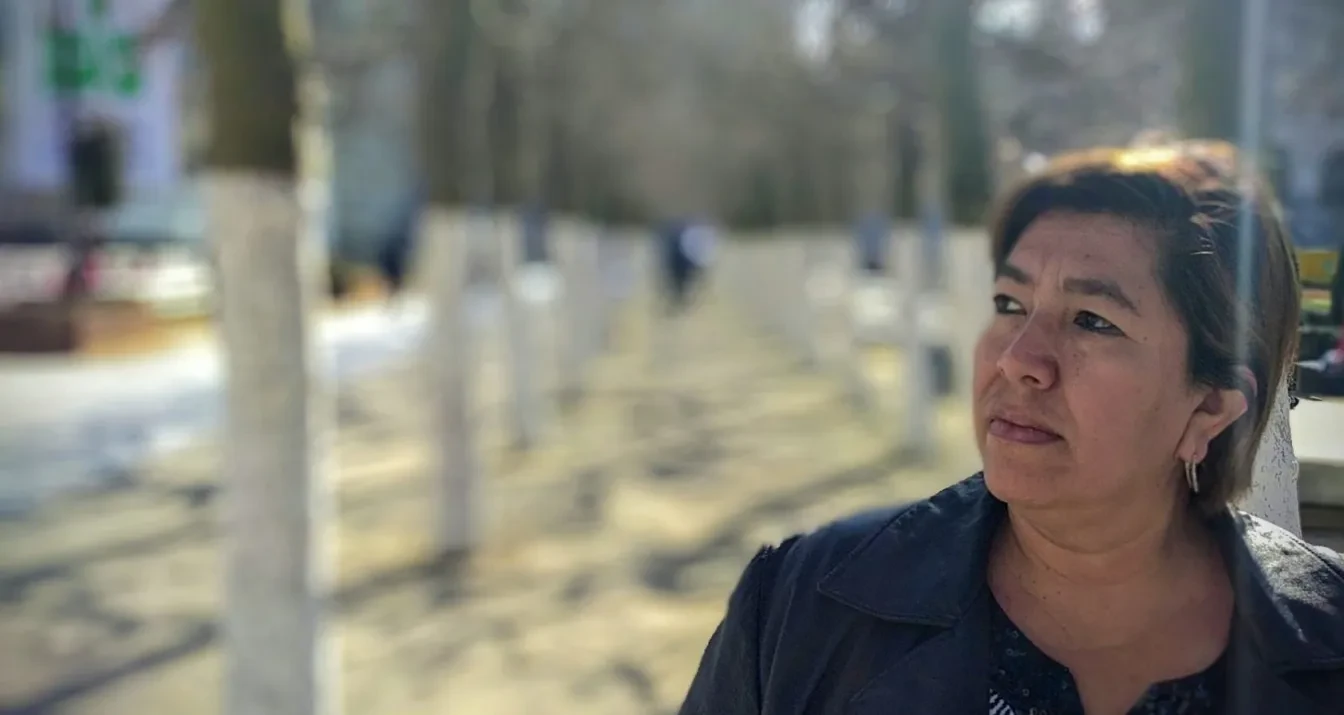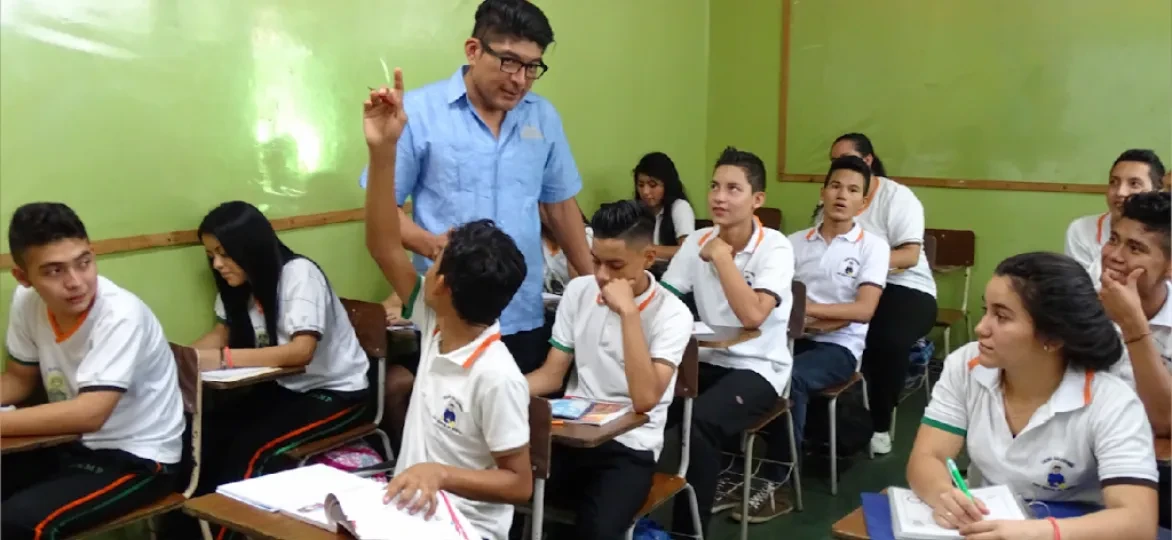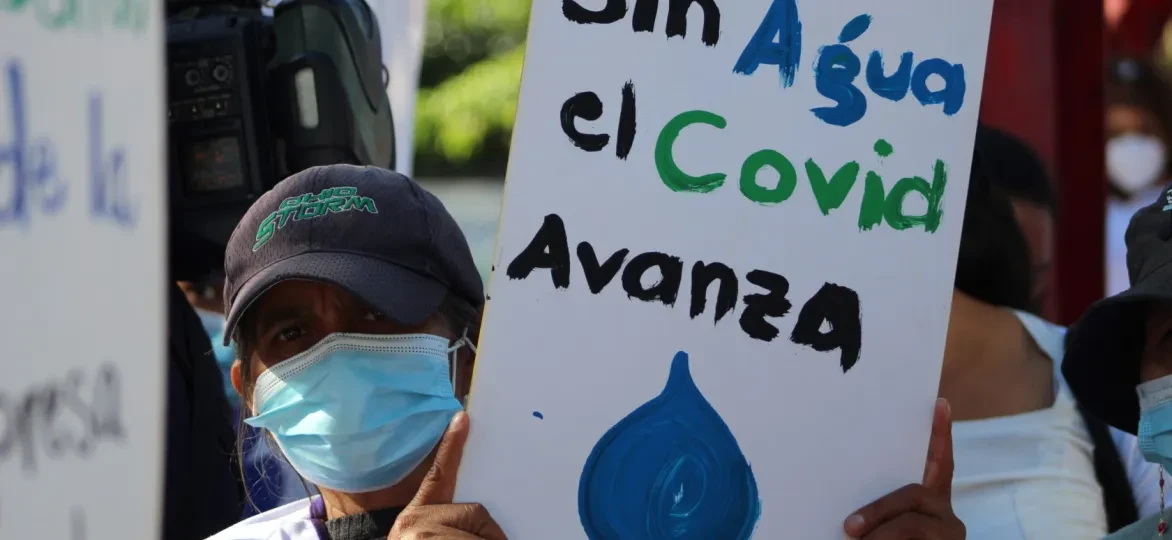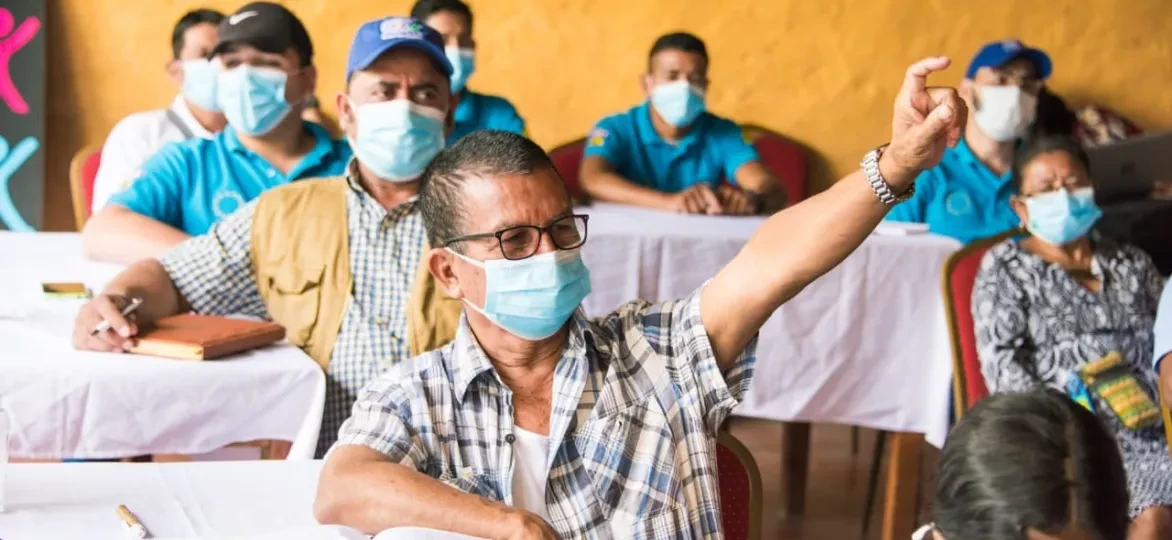Interview: 'We won't let anyone do it anymore'
Life for textile workers in El Salvador is tough, especially for women. Marta Guadalupe Zaldaña Hernández is a Salvadoran union leader who rose from a rocky slope and now fights for labor rights and gender equality.
Apr 13 2017
5 minutes
Salvadoran union leader demands clean clothes
Marta Zaldaña (47) lives for textile workers. Every day she receives phone calls from women on the brink of the abyss. They do not receive their wages or are threatened with dismissal. Their boss cannot keep his hands to himself or simply does not want assertive women in the factory.
She knows all too well the Central American textile factories where the women work. They are the kind of unsafe maquilas [1] with which the Salvadoran free trade zones are thickly sown. Dark, stinking concrete boxes where small illegible signs at the entrance point out the dangers of machines. Where women are not given a break to go to the toilet, where the hunger for profit is satisfied with human suffering.
Marta knows all about the oppression in the factories. Once she was 'just' a woman herself. She fought back and won. In the meantime she is the head of a trade union federation and she fights back for 'her' textile workers.
Why do you identify so much with the struggle of the Salvadoran textile workers?
"Textile workers are often young women who receive little respect because of their gender. I have also experienced this. My first job as a young woman was a path of suffering. I was a civil servant at the National Institute for Pensions and was soon confronted with sexual harassment. I had a very difficult time, because it seemed as if I could only rely on myself. By breaking the silence and seeking help from the union, I no longer felt alone. Yet the suffering did not end. As so often happens, the employer never took the complaint seriously. In the end, I was even fired. It was a difficult period."
How were you able to overcome that blow?
"The public pension sector union protected me and gave me a job. We went to court and my employer was proven wrong. It was a huge victory for me, but it was also a huge step forward for the union and women in the workplace. In the past, sexual harassment was a taboo subject. Female union members, but also female employees, now knew for sure: we will not let them do it anymore."
Was the lawsuit that was won so revolutionary?
"Look: the unions did take women into account, but sometimes the fight for equality has to go further than the demand for extra diapers. The glass ceiling, equal pay for equal work, the right to further training... Women have to be able to stand strong in their shoes to enforce their rights. So it is a process of emancipation. That emancipation is now also tangible within the unions in El Salvador. The role of women during actions is no longer limited to cooking and cleaning up. (laughs)"

Seven years later you started working for the textile union, can women also make their mark there?
"FEASIES unites several smaller unions, including those from the textile sector, and is now working with numerous women's organisations to make a difference. At the moment, every member union has a women's secretariat, twelve of the fifteen member unions have a woman at the head and four out of five board members of FEASIES are women. I think it is normal that a union that is active in the textile sector is aware of gender issues. More and more women are working in the sector, so organisations that stand up for workers must take this into account.
However, it took a lot of effort to get the voice of women heard. In the beginning, we were accused of destroying the fight for labor rights by harping on gender equality. But of course we didn't accept that! In the meantime, women are also more assertive in the workplace because of our efforts to make them aware of their rights. Men too, by the way, because many of our workshops are also aimed at them. In the past, they might not have thought about the fact that it is unacceptable for a boss to hit a female worker on the bottom."
You have been at the head of the union for twelve years now, why do you continue to fight for Salvadoran workers?
"I can look back on many great achievements, but there is still so much work to be done. Wages are not paid correctly, holiday pay or overtime are forgotten. People work without a contract or in unsafe conditions and are often not given the opportunity by their employer to join a union.
I feel very involved and do everything I can to help. The people I stand up for call me every day, because they need me. Every day I hear the most harrowing stories. People who are forced to stay home to care for the elderly and are therefore at risk of being fired, young women who are constantly harassed by their foreman and so on. I get tears in my eyes when I think of all those young people who leave their lives behind in the factories, barely see their families, just to be able to feed their children. That is the reason why I get up every day: I have become a confidant for so many workers and I can really make a difference."
Author: Dries Merre
[1] Maquilas are companies in the Central American free trade zones. For example, they are exempt from corporate taxes, import tariffs on goods or municipal taxes. Want to know more?



